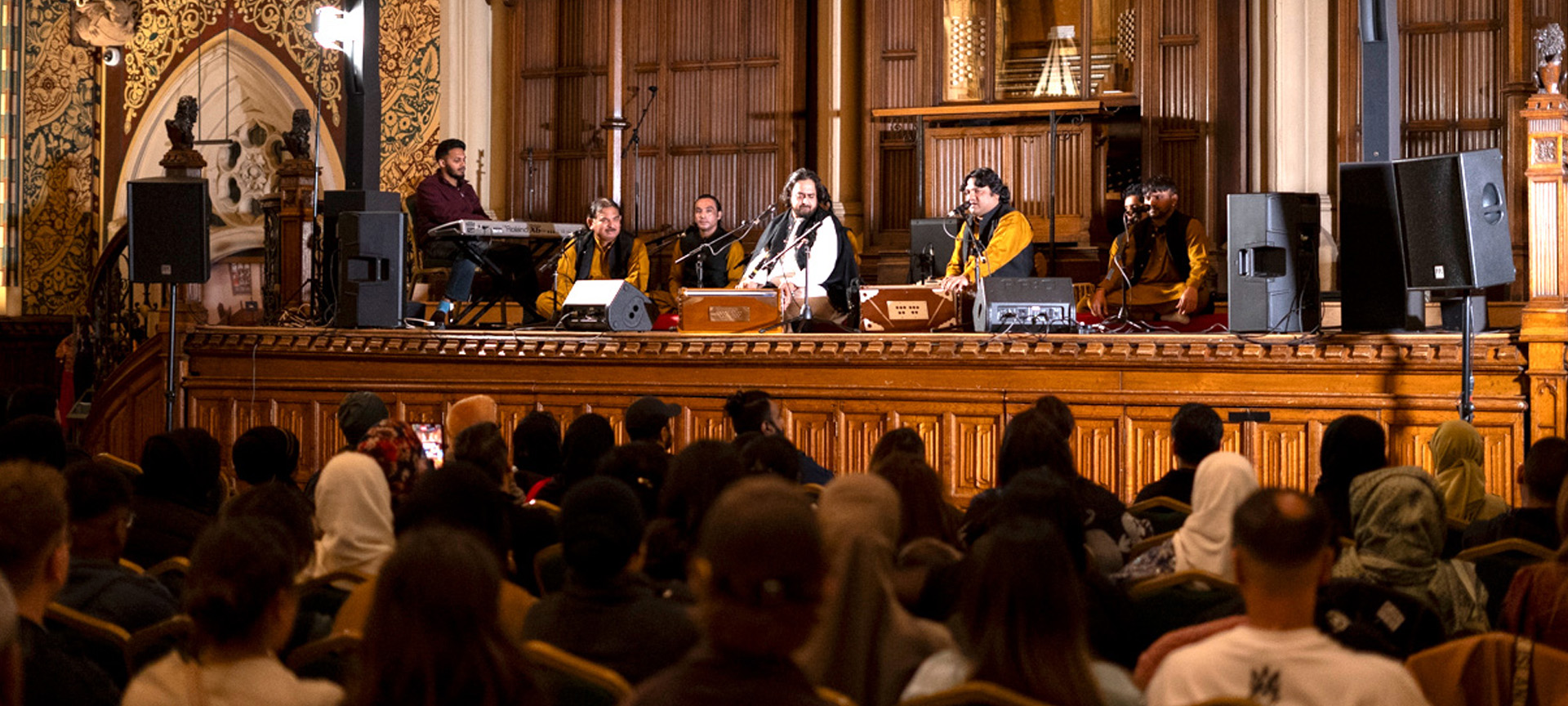
The Spiritual Essence of Qawwali in Sufi Muslim Practices
by admin July 26, 2021Qawwali, a devotional form of music within Sufism, has a profound role in the spiritual practices of Sufi Muslims. Its origins lie in the centuries-old traditions of Persia and the Indian subcontinent, where it developed as a means of expressing love, devotion, and longing for the Divine. In Sufism, which focuses on the mystical connection between the soul and God, qawwali is not just music; it is a spiritual experience that elevates the listener, inviting them into a state of contemplation and transcendence.
Why Sufi Muslims Use Qawwali Music
Sufi philosophy centers on attaining a deep connection with God, often through poetry, music, and dance. Qawwali is integral to Sufi practices as it facilitates a transformative state known as *wajd* or *hal*, a trance-like condition where listeners and performers experience closeness to the Divine. The lyrics, usually adapted from the poetic works of revered Sufi saints like Rumi, Amir Khusro, and Bulleh Shah, express themes of divine love, devotion, and spiritual surrender.
Qawwali sessions, often held in Sufi shrines or gatherings, serve as communal prayers that transcend spoken language through rhythm and melody. Each performance involves verses in Persian, Urdu, Punjabi, or Arabic, allowing for an inclusive spiritual experience that is accessible to a diverse audience. For Sufis, qawwali’s cyclical melodies, along with hand clapping and vocal improvisations, create an environment where listeners can enter a state of meditation, shedding worldly concerns to focus on spiritual enlightenment.

Occasions for Qawwali Performances in Sufism
Qawwali holds a sacred place in Sufi rituals, performed at various significant spiritual and social events, which include:
- Urs Celebrations (Death Anniversaries of Saints)
Urs, meaning “wedding” in Arabic, commemorates the death anniversary of a Sufi saint and symbolizes the soul’s union with God. Qawwali performances are central to these celebrations, bringing together devotees to honor the life and teachings of saints like Khwaja Moinuddin Chishti in Ajmer and Hazrat Nizamuddin Auliya in Delhi. The repetitive rhythms and rich verses in qawwali enable listeners to meditate on the teachings and spiritual presence of the saints.
- Sufi Shrines (Dargahs)
Sufi shrines, known as dargahs, are places where devotees seek spiritual solace and blessings. Qawwali sessions are a regular feature at these sites, especially on Thursdays and Fridays, as these days hold special significance in Islamic tradition. The qawwals perform at the shrine’s courtyard, and visitors join in, clapping and often moving in rhythm, making the music an inclusive communal experience. These performances foster a sense of unity and connection among devotees, transcending barriers of language, ethnicity, and status.
- Special Religious Observances
Qawwali is also performed during religious observances like Ramadan and Muharram, where the music emphasizes themes of patience, sacrifice, and divine love. These occasions see qawwalis with poetic verses that speak to spiritual endurance and devotion. Performances during these observances are often quieter and more introspective, aligning with the reflective mood of these periods.
- Private Gatherings and Sufi Festivals
In addition to formal occasions, qawwali is also performed in private gatherings and Sufi festivals organized by local communities and cultural organizations. Festivals such as the Ajmer Sharif Urs Festival in India and the Sehwan Sharif Festival in Pakistan are notable for qawwali performances. These festivals draw people from across the world, making qawwali a bridge that connects devotees globally and underscores Sufism’s inclusive nature.
- Celebration of Life Events
For some in South Asian communities, qawwali is also an expression of joy and celebration at weddings and other life events. Though not strictly religious, these performances maintain the spiritual essence of qawwali, celebrating love and unity within the Sufi framework. These occasions feature lighter qawwalis, often with playful themes or romantic undertones that reflect the joyous nature of the event.
The Structure and Experience of a Qawwali Performance
A typical qawwali ensemble includes a lead singer (the qawwal), a harmonium, percussionists playing the tabla or dholak, and supporting vocalists who engage in call-and-response patterns. The lead qawwal interprets the verses, improvising and drawing the audience into a shared emotional journey. As the tempo and volume increase, listeners often find themselves emotionally moved, entering a state of *wajd* that Sufis regard as a gift from the Divine.
This immersive experience of qawwali transcends mere listening. Devotees participate in clapping, singing, and even swaying, embodying a shared devotion. The communal aspect of qawwali, where everyone is equal in their worship and devotion, reflects the inclusive message of Sufism itself. It also reinforces the Sufi ideal of *tawhid*, or unity with God, as each listener and participant becomes part of a larger spiritual connection.


Qawwali: A Bridge Between Tradition and Modern Spirituality
Qawwali continues to attract diverse audiences, both within and outside the Muslim community, due to its profound emotional depth and universality. The genre has found a home on international stages through artists like Nusrat Fateh Ali Khan, who introduced it to the global music scene. Today, performers like Hamid Ali Naqeebi carry forward the tradition, balancing classical styles with contemporary influences that appeal to younger audiences. This adaptability has made qawwali not just a symbol of Sufi spirituality but a bridge between tradition and modernity, resonating with seekers of spiritual experience worldwide.






Leave a comment